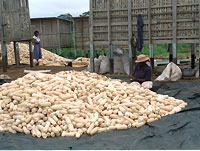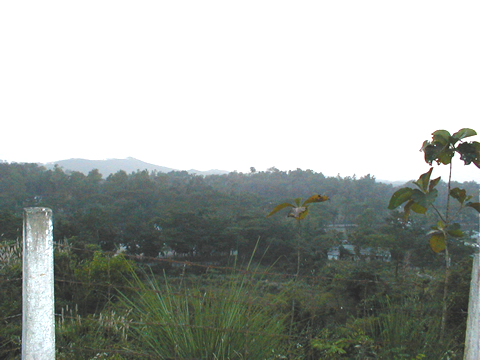| |
PARTNERS
Ayrlie Partners
Ayrlie Partners works with companies to improve their ability to
maintain presence, enhance reputation, and secure social license
to operate and grow while working in challenging social and political
environments, especially in the developing world.
Ayrlie Partners provides:
 Sustainable development solutions for communities and clients Sustainable development solutions for communities and clients
 Development partnerships leveraging resources of companies, donors and NGOs Development partnerships leveraging resources of companies, donors and NGOs
 Local content and supplier development for oil, gas and mining companies
Local content and supplier development for oil, gas and mining companies
 Assessment and management of social risk and stakeholders that affect
our clients
Assessment and management of social risk and stakeholders that affect
our clients
Our focus is on developing our clients' ability to manage global and local social challenges and emerging issues that may impact on operations.
Our aim is to work closely with clients to develop and implement strategies that help them manage expectations of local and global stakeholders and achieve outcomes that benefit both company and community. Our pro-active approach is designed to reduce the likelihood of a major community incident that could hurt the reputation of the company and consume company focus and funds.
Our point of engagement with our clients is their business plan. We support client headquarters and field operations to help develop the knowledge, people and systems to manage social risks and opportunities throughout the organization.
Our goal is to help clients find sustainable development solutions which meet their business objectives and address the concerns of the host environment and stakeholders.
Our approach is systematic, tested and derived from our practical experience supporting companies throughout the world.
Ayrlie Partners works at both the strategic and operations levels, adapting our services to the requirements of the client. We emphasize coaching to enable clients to anticipate social and market trends that may impact reputation and brand value.
Ayrlie Partners is led by a team of professionals
with broad experience working with companies throughout the world
on sustainable development, local supply chain and social risks.
We carefully assemble and mobilize teams from our international
networks to address clients' specific requirements.
http://www.airliepartners.com
The Business-Humanitarian Forum (BHF)
Since 1999, the Business-Humanitarian Forum has worked to bridge the gap of understanding and promote cooperation between humanitarian organizations and private business, encouraging both sides to work together to solve complex development problems. The BHF does this by participating in private sector development projects in poor countries; by bringing together entrepreneurs from least developed countries with potential supporters; and through dialogue and training. In all this work, the BHF builds awareness that business has strong, long-term interests in supporting the work of the humanitarian community; both the private and public sectors have common interests in the stabilization of developing and post-conflict societies.
The BHF uses the synergy of public-private cooperation to build sustainable economic enterprises in post-conflict and developing areas. In this regard, the BHF expands on the business sector's corporate social responsibility (CSR) programs to motivate and energize such projects.
The BHF is currently developing specific projects involving the private sector and public development organizations in Afghanistan, the Balkans and southern Africa. These projects are concrete expressions of cooperation between public and private organizations to reconstruct the economies of war-torn countries in a practical way, providing sustainable employment and locally-owned production facilities for these needy societies.
http://www.bhforum.org
The Sasakawa Africa Association
Established in 1986, in Geneva, the Sasakawa Africa Association (SAA) spearheads efforts to modernize the techniques small farmers use to produce food and helps farmers organize to get credit, acquire inputs, and market their harvests more successfully.
The formation of SAA stems from the grim Sahelian drought in the early 1980s. In 1984, the late Ryoicho Sasakawa, the chairman of The Nippon Foundation recognized that famine was the symptom of an underlying malaise in food production. He was aware that in Asia the advent of high yielding cereal varieties combined with fertilizers had subdued a chronic outbreak of famine. He contacted Norman Borlaug, the Nobel Peace Price laureate, to find out whether the Green Revolution principles could be applied in Africa.
Dr Borlaug collected the advice of his agricultural collegues in Africa and elsewhere. Based on these discussions, he concluded that the existing research products and information could greatly expand the African food production, but the improved technologies were not reaching the smallholders who produced most of Africa's food, and the feeble extension systems were failing to link research to farmers.
SAA operate jointly with the Global 2000 programme of the Carter Center in finding ways to raise the productivity of African farmers. The Carter Center's mission is to encourage sustainable development and equitable and responsible use of resources by promoting food self-reliance, improving health and the environment, and encouraging sound population policies.
 |

|
Sasakawa-Global 2000 established its first food crop technology transfer projects in Ghana and Sudan in 1986. At present, programme activities are under way in Benin, Burkina Faso, Ethiopia, Ghana, Guinea, Mali, Malawi, Mozambique, Nigeria, Tanzania, and Uganda. Participating governments provide most of the project staff needed to carry out field demonstration programmes.
SG 2000's mission is to assist sub-Saharan African governments reduce poverty, enhance food security, and protect the natural resource base through the accelerated adoption of productivity-enhancing agricultural technology.
http://www.saa-tokyo.org/english/
|
|







